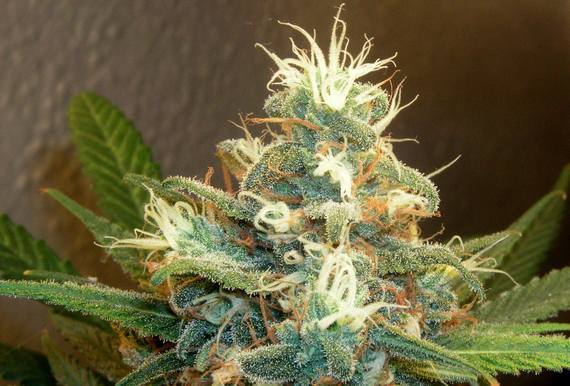Justin Trudeau, newly-minted Prime Minister of Canada and self-professed dabbler in pot, announced earlier this month that his Liberal Party would move ahead with plans to legalize marijuana as early as 2016. Ending prohibition was part of the party platform going into the October election and is a clear break from ex-PM Stephen Harper, who claimed (with a straight face) that marijuana was "infinitely worse" than tobacco. Once Canada goes through with full legalization, it will join a small but growing club in the Americas that includes Colorado, Washington (both the city and the state), Oregon, Alaska, and Uruguay in South America.
In both Canada and the US, increasingly large majorities back legalizing marijuana. In the States, the number now stands at 58 percent. There are many good reasons to change the archaic laws governing weed, including the relatively mild health risks and the irreparable damage done to millions of non-violent users by the legal system. Another commonly cited one is that ending the drug war will "destroy the illegal market," as University of Ottawa criminologist Eugene Oscapella put it. Sure, being able to buy legally should put a dent in the black market, but is it really that simple?
What the average customer in America may fail to realize (or chooses to forget) is the industry of growers, processors, smugglers, gangsters, and cartel bosses behind the plastic bag of weed they buy from their local dealer. That underground network supplies marijuana but also harder drugs like cocaine, heroin, and meth. Whether being moved by cartels setting up their own mini-states in Mexico, insurgent groups in Colombia and Peru, or even the (former) president of Guatemala, narcotics are the heart and soul of organized crime in Latin America. While pot might be not be nearly as bad for your health as cocaine or meth, it is still a huge part of the drug trade. On Colombia's Atlantic coast in the 1980s, as many as 100,000 people were involved in cultivating marijuana. The same trafficking networks created to transport that pot were later repurposed for cocaine.
Of course, the goods smuggled are not always so flashy. In some cases, trafficking legal products along the same routes can be just as lucrative and much less risky. Take Paraguay, where current President Horacio Manuel Cartes Jara and several other officials own stakes in tobacco companies that manufacture ten times more cigarettes than Paraguayans actually smoke. The surplus (about 20-30 billion cigarettes a year) are then smuggled into other countries. A main route for moving them is Paraguay's "Triple Frontier" with Brazil and Argentina, where small-time traders have long been going to pick up cheap merchandise and resell it in Brazil. On the Triple Frontier, there is $5 billion in cross-border trade (a lot of it undeclared) between the towns of Ciudad del Este in Paraguay and Foz do Iguaçu in Brazil. Needless to say, that trade also includes hundreds of kilos' worth of marijuana and cocaine.
The mass smuggling of cigarettes in Paraguay offers an important lesson for those looking to legalization as a panacea. Even with a product that can be bought legally and just about anywhere, smugglers are ready to cash in on price differences and more than a few smokers are willing to buy from them. A recent State Department report on the global illicit tobacco trade explains how running smokes serves as a gateway drug to more nefarious activities (humans, weapons, drugs, antiquities, diamonds, and counterfeit goods) and is a significant threat to national security. Regardless of what's being smuggled, authorities on both sides of Latin American borders need to enforce customs controls and stop smuggling to make sure the legal trade, if there is one, doesn't get undercut.
When revenues (even from legal products like cigarettes) end up in the wrong hands, they can also finance more serious crime, including human trafficking and terrorism. After all, there is no reason for the same criminal organizations running guns, drugs, and people not to diversify to take advantage of low hanging fruit. Mexico is a case in point: while it struggles with drug cartels armed to the teeth with guns they buy in America, the government also has to deal with 340 million packs of contraband cigarettes that cost $70 million in lost taxes every year. The governments of both Guatemala and Panama have alleged the notorious Zetas, one of Mexico's most powerful cartels, are in on selling "pirate" packs smuggled over the southern border. It's not just a Latin American affair: even in the US, Mohammed Youssef Hammoud made headlines when the FBI discovered he was financing Hezbollah by pushing cigarettes.
When it comes to making policy, developed countries outside of Latin America also have to carry their weight. These smuggling networks exist because there are buyers at the end of the road and because policymakers have failed to take action. In the case of the drug trade, those buyers have always been in the US, Canada, and Europe, but now include East Asia and Australia as well. That being said, solid enforcement, which takes all forms of smuggling seriously, doesn't necessarily have to catch everything. It just needs to be rigid enough to raise the costs for smugglers and render the activity unprofitable. While the State Department has recognized the threat posed even by the seemingly innocuous smuggling of cigarettes, the European Union for its part has omitted it in the European Agenda on Security.
As far as marijuana is concerned, legalization is the right move. When Canada is raking in tax dollars from regulated sales and letting users live their lives without draconian prosecutions and jail time, the people in power here in the US will hopefully agree to follow Trudeau's lead. Whenever our leaders do decide to change their minds, though, it will still be just as important to stop the illegal marijuana trade and make sure what's being sold stays on the books.

